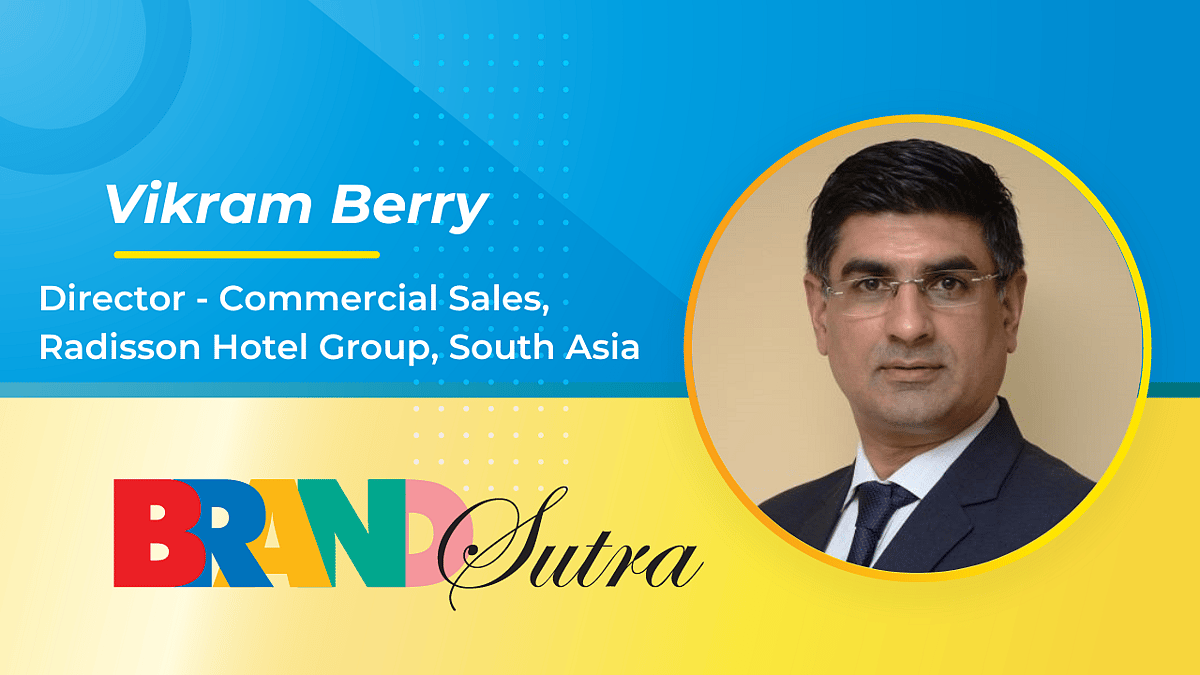Work-life balance isn’t just a term the Gen-Z throws around on social media. People from all walks of life have been seeking it out in their experiences. Vikram Berry, Director of Commercial Sales, Radisson Hotel Group, South Asia, tells us how hotels have had to adapt to this phenomenon along with other changes to keep pace with the changing expectations of customers.
New Ways To Live
“Earlier, travel was identified as either business or leisure. Now in a lot of cases, we see that business and leisure is a combined travel intent.” Berry explains that people have extended stays at hotels where they combine different intents. On one hand, extended stays are good for business. On the other, it is an added stress because the two different intents require two very different environments.
Typically in a business hotel, you would fundamentally operate in a business environment and setting. But today, business hotels simultaneously have offerings that allow people to rejuvenate and relax. Here, spas have become a key offering. Similarly, Berry explains that resort properties would emphasise on excursions and relaxation. But now, resort properties have had to add on working spaces and Wi-Fi availability.
“Today’s generation—not just the consumer but even some of our corporates–are taking sustainability very seriously.” During the ‘request-for-proposal’ season, when reaching out to corporates for annual contracting, many companies are looking for and awarding points to sustainable and green hotels, explains Berry. “Sustainability is and will continue to be a key focus for the industry and is going to be the way forward.” This emerges across multiple platforms including something as small as an electric vehicle charger.
Awareness & Outreach
While the business-to-business format has remained much the way it was with requirements for trade fairs, panels and roadshows, the style of communication in the business-to-customer setting has changed. “Consumers are no longer just looking at going through a magazine or going through travel agency portals to decide where they want to stay.” Social is the word. People have moved to social media to see what’s trending. Here, user-generated content and storytelling reign supreme.
Radisson’s Many Brands
The global group has about eight operational brands in the country which have different segments and offerings. Radisson Collection is a representation of luxury—unique properties in terms of architecture or location. “A classic case and example for India would be the Radisson Collection in Srinagar, Kashmir, which is the largest property in the state.”
Next, Radisson Blu is an upscale, full-service, experiential brand found in capital cities, airports and leisure destinations. The offering is for both business and leisure travel. Radisson has a similar offering but gives you the opportunity to have full service experience in cosy corners.
Radisson Red was formed keeping in mind today’s vibrant generation. Common social spaces, urban locations and bold designs are its focus.
Park Inn by Radisson and Park Inn & Suites by Radisson, are an affordable offering for mid-scale and upper-middle-scale travellers seeking value. Berry tells us that the offering was especially built out for the region. “In tier-two cities and far-flung locations, hospitality continues to be aspirational. But given the immense growth, Radisson Hotels felt the pulse and decided to go into those locations by building something very approachable.”
Radisson Individuals is a collection of hotels with unique characteristics and locations with boutique wellness experiences and cultural immersions. “They are a very localised version of our hotels.”
Countryman Suites by Radisson is about family-friendly stays in suburban and rural areas. And finally, Park Plaza is locally inspired, upper upscale experiences with very personalised spaces.
The Lean, Mean Tech Reality
In the hotel industry, technology has played a two-part role. One from the customer point of view where technology has changed buying behaviour and second, to give the business a lean, mean competitive edge. “With the competitive edge that we get from technology, it becomes important for us to bring in the profit because every business only succeeds if it’s profitable at the end of the day.” Tech comes in handy when optimising supply and capitalising on manpower availability in tough locations.
The Raddison Group uses technology to track guests’ needs and requirements, room service orders, the laundry process and more. AI has also helped in data mining to see what’s working and what’s not. “For today’s competitive environment, you need to always have your eye on the ball.”
Moments Of Essence
In optimising guest experience, Berry believes that there are three points that make a huge impact on a customer, especially for the Indian demography. One, the arrival experience starting from when you walk into the lobby. Two, the room—personalised touches and attention to detail. And third, the food. While these are undeniably pertinent, an individual could be influenced by completely different elements. “Like for someone, it could be a plate of fries that defines their experience!”
“But the essence of loyalty,” adds Berry, “is to walk the talk”. When the customer gets what they were told they would, you’ve automatically bought yourself a loyal customer.
